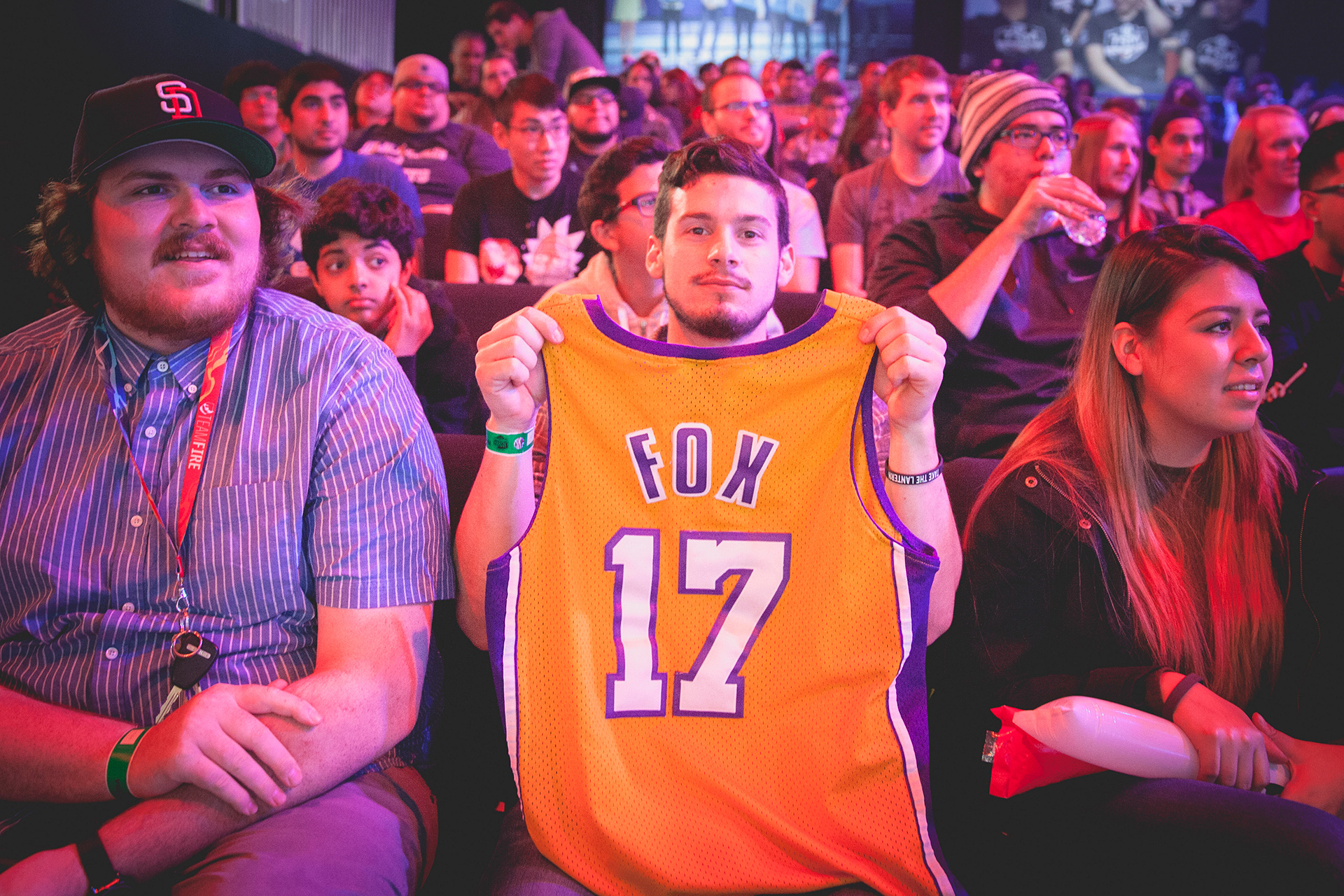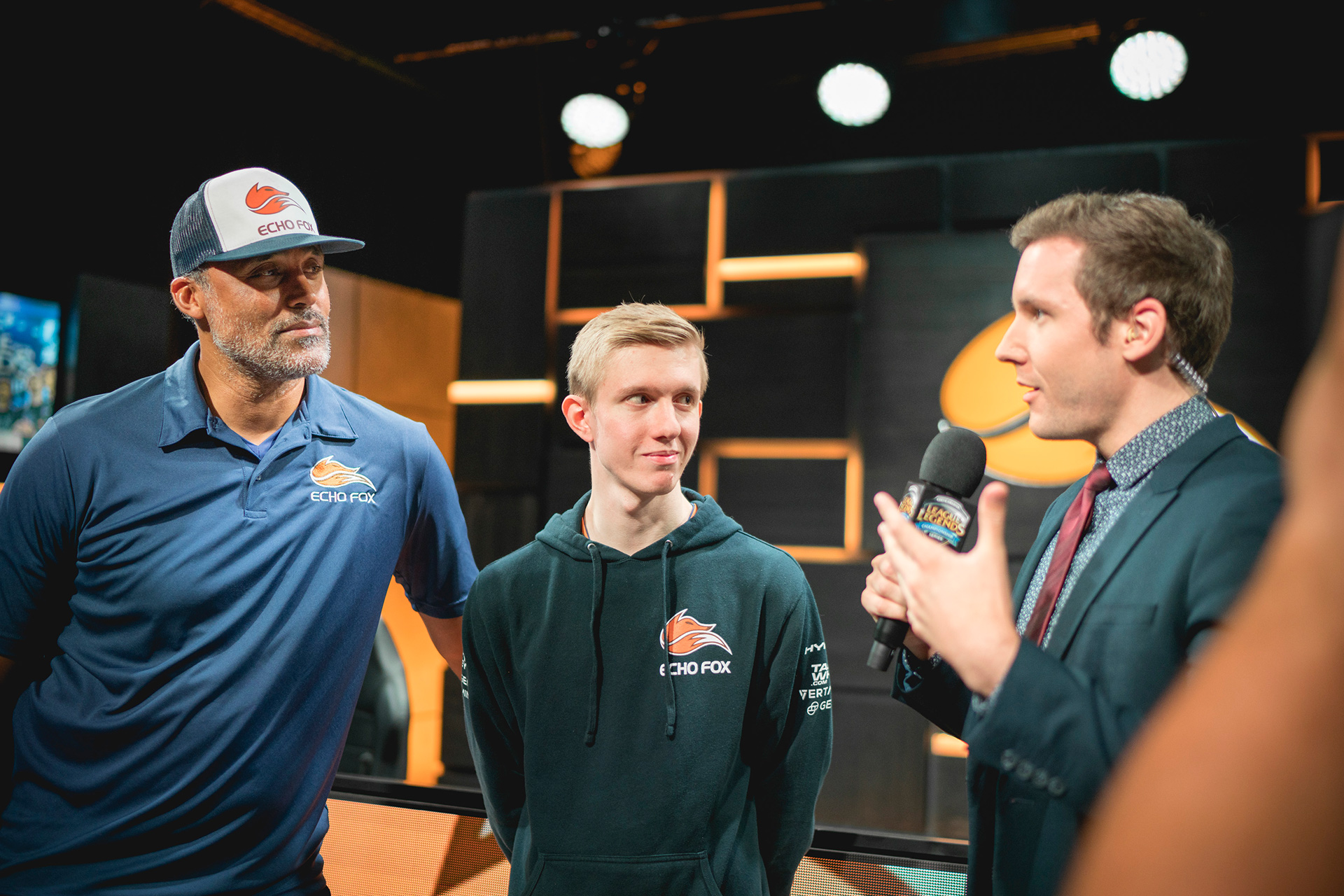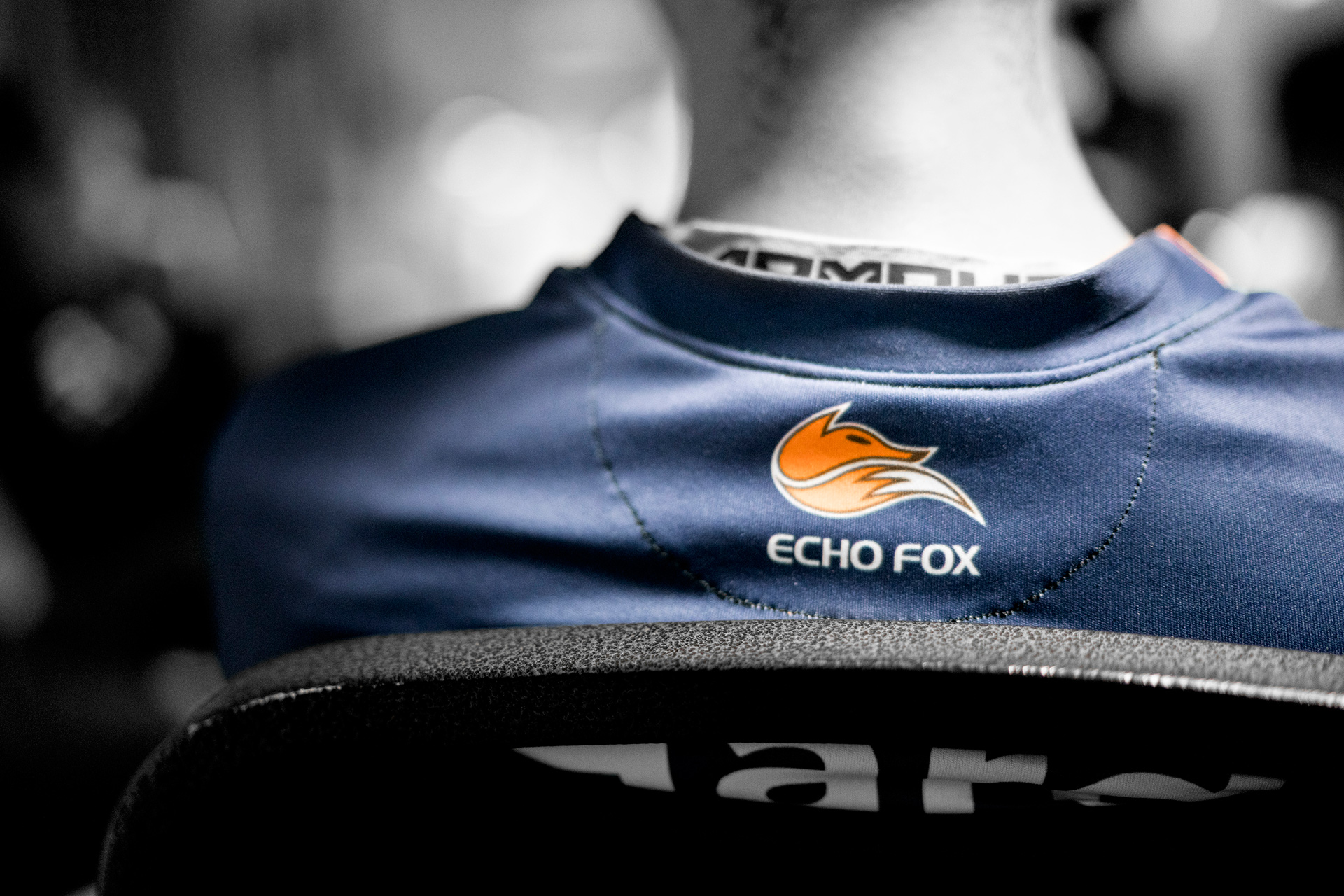Rick Fox, propietario de Echo FOX, ha escrito en The Players Tribune un articulo bastante interesante sobre la parte de negocio de los esports, su entrada en los mismos y sus impresiones en este tiempo.

En el artículo, FOX explica los inicios de la squad, una squad que empezó, no solo como una forma de conectar con su hujo a través de una de sus pasiones, sino como una buena oportunidad de negocio ante una gran audiencia, ya que Rick comenta como la experiencia en el Madison Square Garden, donde miles de fans animaban a sus equipos cambió cualquier percepción anterior sobre este mundillo.

Habla sobre como, al ser la primera vez que no tenia un mentor para guiarlo, contactó con Amit Raizada, alguien con quien ya habia contado anteriormente para otros negocios, y que le ayudó a organizarlo todo alrededor del equipo.
Además, explica su primer encuentro con Froggen, y como vio en él una personalidad parecida a la suya, ya que ambos son competidores natos.

Os dejo todo el artículo, es muy interesante de leer:
A couple of years ago, I saw something that left a big impression on me.
Well, I didn’t see it so much as I felt it.
I was standing in a packed Madison Square Garden and I could feel the entire arena shaking. That was something I’d experienced plenty of times during my playing career, but this time was different — instead of being surrounded by basketball fans, I was in the presence of tens of thousands of gamers.
I’d decided to attend the 2015 North American League of Legends Championship as a way of doing some bonding with my son Kyle, who is an emerging video game designer. Ever since he was old enough to maneuver a computer mouse, we’ve always been able to connect over our mutual love of gaming. So I didn’t approach a large-scale gaming event like some (maybe even most) people from my generation would have — that is to say, with an intense skepticism. I’ve always appreciated gaming as something that can bring people together. But that being said, even I was taken aback by what I witnessed during that event.
What struck me wasn’t that the crowd at MSG was completely different from what I’d ever experienced. In fact, it was the complete opposite. I played in intense rivalry games against Duke as a college player at North Carolina. I won three NBA championships as a member of the Lakers. I’ve been fortunate to compete at the most hallowed venues and in front of some of most passionate fans in the world.
Being at MSG for that League of Legends event brought all those memories flooding back.
I try to be in tune with my body and my emotions at all times, and what I experienced at that event left an impression on me. The level of passion and enthusiasm I witnessed was something I hadn’t experienced since my playing days. To put it plainly, I could say for certain that what was happening was real.
I walked into Madison Square Garden with no preconceived biases for or against professional gaming, and 48 hours later, it hit me — this was the opportunity of a lifetime. It was then and there that I decided I had to get into the e-sports business.
It made sense on many different levels for me. It would allow me to pursue a passion I shared with my son and to be part of a team competing at the highest level, and it was an opportunity to invest in an exploding industry at a very early stage.
But unlike my time with North Carolina, the Celtics and the Lakers, when the company I kept was built for me, there was no organization to join. And there weren’t any mentors like Larry Bird waiting in the locker room with words of wisdom. For the first time in my life in professional sports, there was no Red Auerbach or Jerry West guiding me. I would need to build my own team to support me.
That’s why I turned to Amit Raizada, with whom I had previously partnered in other successful business deals.
What I admire most about Amit are his vision, integrity and transparency, his knowledge of how to correctly structure deals, and his confidence. Trusting your ability is important in sports, and it’s also a huge factor as well in business. Amit worked incredibly hard behind the scenes, sacrificing much of his personal life for the benefit of the business. Most importantly, he was willing to take the time explain the aspects of building a solid foundation in business to me.
It took a little convincing, but after some research, Amit saw opportunities and helped create a vision for a franchise. In 2015 we cofounded Echo Fox, with the goal of creating the premier e-sports organization in the world.
Amit helped me fill the front office with experienced business executives, as well as finance, regulatory and legal experts. He convinced former Verisign CEO and San Jose Sharks co-owner Stratton Sclavos to serve as chairman and co-owner of our company. Together we hired gaming industry legend Jace Hall as our CEO.
Having the proper management in place was part of the equation, but a franchise is nothing without players, and identifying the right talent for our teams was perhaps one of the most gratifying parts of this journey.
I think back to the first time I met “Froggen,” a Danish League of Legends player.
What struck me were all the similarities he shared with the great players I had come across during my NBA career. This was someone who focused intensely on one thing for 16 hours a day because he was driven to be the best at it. The only difference between him and guys like Kobe Bryant and Larry Bird was name recognition. As competitors — and I’ve been around some remarkable ones — it was obvious to me how many traits they shared. While there are still many outdated stigmas associated with e-sports by people who have never taken the time to try to appreciate them, I’ve always known that just because an older generation couldn’t fully understand what someone like Froggen was pursuing didn’t make it any less meaningful.
Regardless, the audience for Froggen’s talents isn’t theoretical — it’s ever-present, viewing his streams online and filling arenas around the world to watch him compete. In Froggen, I simply saw another competitor trying to master something and set himself apart from the rest of the world. Similar to the major traditional sports in the U.S., millions of people play the same game that he has mastered on the highest level. Why question that? Just appreciate it.
With players like Froggen, we began to build teams that are now competing in just about every popular game on all platforms. We now own eight teams, have 35 players under contract, have key partnerships with Asus computers and Facebook, and a deal for a reality television show that will focus on our players.
Our team treats our players the same as if they were professional athletes, because that’s what they are. We monitor all aspects of their training and preparation, all the way down to their nutrition, fitness and sleep. We supply them with the best coaches in the industry and offer them a state-of-the-art training facility. We do that because, quite simply, it’s what’s required in order to compete for championships.
But while I connected immediately with our players, getting up to speed on the ins and outs of the industry has been a process. With e-sports, the language of sport is the same, but the dialect is different. That’s what takes a little time to learn. Football players speak the same general language as basketball players, but the nuances differentiate one game from another — the subtle distinctions in how the players in each discuss strategy and competition. Gaming is no different. I’ve always related to my players on a competitive level, but it took me some time to become more in tune with the dialect of gaming. I’m still learning every day. I’ll spend several hours every day playing H1Z1 or League to become more familiar with the games and also the cultures that surround them.
Honestly, it’s been a blast, and I’m proud of the progress our franchise has made. The partnerships our team has lined up are fantastic, and the revenue opportunities are as endless as your imagination. Without question, operating Echo Fox has already been one of the most rewarding experiences of my life.
Of course, running a business takes a different set of skills than serving as the captain of a basketball team, as I did with North Carolina, the Celtics and the Lakers. But there are similarities. In fact, one thing on which Amit and I strongly agree is the importance of people. It’s like what Rudyard Kipling wrote in The Jungle Book, “For the strength of the pack is the wolf, and the strength of the wolf is the pack.”
For a team to succeed, you need to have unselfish players willing to work together for a common goal: winning. The same is true in business.
That said, there are many ways in which business is different from professional sports. There’s one etiquette in the locker room, and an entirely different etiquette in business. I’ve learned a lot in my transition from player to business owner. I’ve made my share of mistakes along the way. But I’ve tried to learn from them, just as I learned from mistakes I made on the court and in my personal life.
If I could offer advice to anyone making the transition from sports to business, it would be this: Invest in something you’re passionate about. To succeed, you’re going to have to work just as hard as you did as an athlete. That means you’re going to have to be around that business 14 to 16 hours a day — day after day. It will be a lot easier if you enjoy what you’re doing.
As athletes, it was important to be coachable. That’s equally important in business.
If you try to do things you’re not qualified for, you’re setting yourself up for failure. You can’t do it all. You can’t shoot every ball, you can’t make every assist or grab every rebound. So don’t be afraid to ask for help. Just make sure you seek out someone you trust — who also happens to be an expert in the field that you’re going into.
Over the past couple of years I’ve spoken to numerous people who have asked me what this industry is all about. I always explain to them that e-sports is just the next evolution of competition; that it’s so much more than whatever stigmas you might have associated with gaming in the past.
I tell them what millions already know: E-sports isn’t the wave of the future — the future is already here.
Traducción de #15